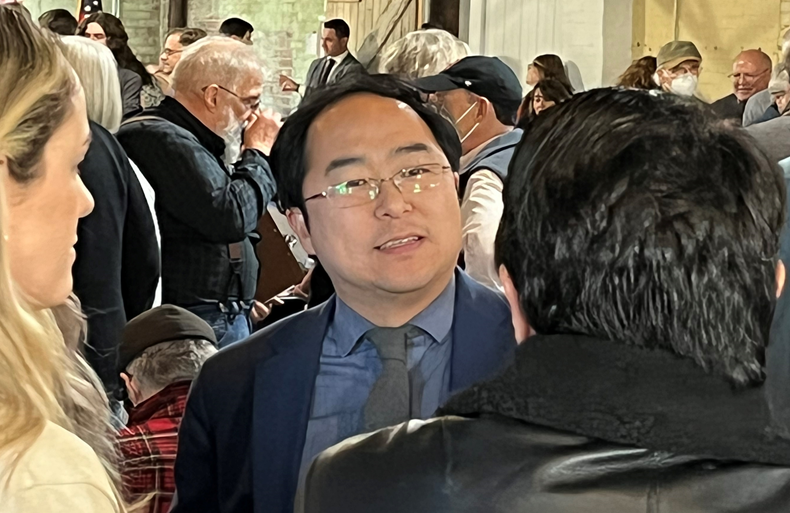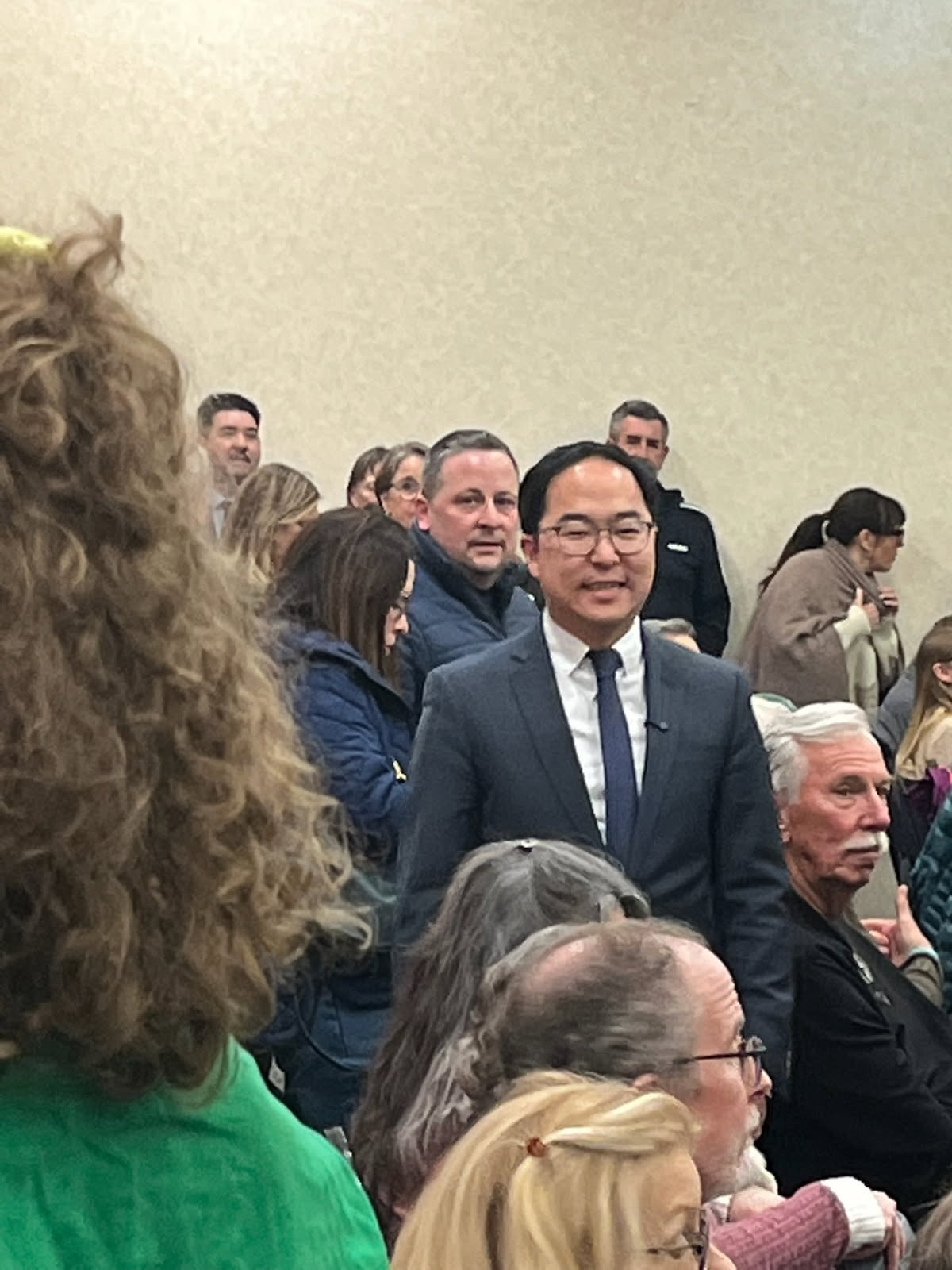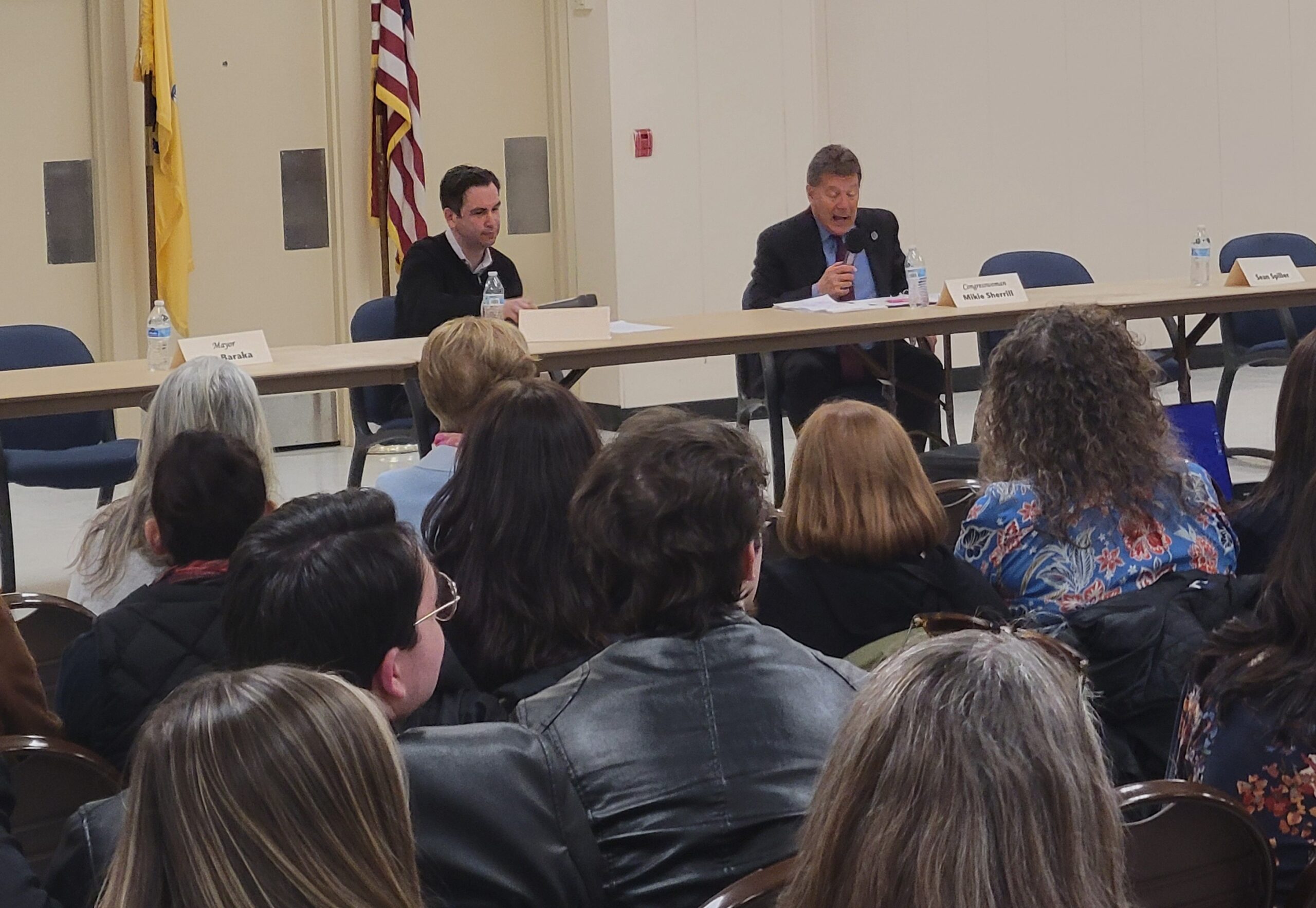
Andy Kim is doing pretty well, having just racked up three wins this month in Democratic county conventions.
But he’s still not satisfied with the process – so much so that he filed a federal suit Monday challenging the power of party bosses to draw up ballots.
“The race took a turn” (in his direction), Kim told reporters over Zoom. “But it’s still the same thing.”
The “same thing” is the “county line” – shorthand for a ballot makeup that puts candidates endorsed by county leaders in a favorable position.
This is done by both parties in New Jersey, but the current interest revolves around the Democratic Senate primary, which is mostly between Kim and First Lady Tammy Murphy.
Kim’s suit was joined by congressional candidates Carolyn Rush (District 2) and Sarah Schoengood (District 3).
The plaintiffs want a court injunction to halt how ballots are drawn in advance of the June 4 primary. The suit includes many exhibits and stipulations from political scientists claiming how unfair the state’s system is.
It presents examples of many New Jersey ballots in which an endorsed candidate is “featured together on the ballot in the same column, known as the county line. The system provides preferential ballot position for such candidates and displays them in a manner that nudges voters to select them, even when they otherwise might not. By contrast, their opponents are often excluded from a chance at preferential ballot placement, displayed in a column by themselves, or in a manner that is less appealing to, or harder to find for voters ….”
In its place. Kim wants all candidates for office – Senate in this case – to be listed in the same column. He says he has no problem with county committees endorsing candidates. It is the ballot placement that bothers him.
There is some irony here.
As mentioned, Kim has won three county conventions – Monmouth, Burlington and Hunterdon. Therefore, he will presumably get preferential spots on the ballot in all three counties.
To that, Kim points to the larger issue – the system is still unfair.
He also is thinking practically.
Conventional wisdom suggests that Murphy will be endorsed by party leaders – and thereby get the good ballot position – in the more populous Democratic counties such as Essex and Hudson.
Kim put it this way:
“The First Lady is weaponizing the county line.”
Arguments against the “county line” are not new, but what seems like an arcane dispute has gotten much attention of late primarily because of the battle between Kim and Murphy.
It’s true the current system seems unfair to any objective observer, but whether it is illegal is another question.
Kim contends that the overall problem here is the real issue, noting that county party leaders are not going to give up their power voluntarily.
That point is made. But you can’t ignore the fact that both at county conventions and in recent polls, Kim is doing pretty well under the current rules.
(Visited 243 times, 243 visits today)
Click here for the full Insider Index
The recent filing of a lawsuit by former gubernatorial candidate Hirsh Singh against New Jersey Republican Party Chairman Doug Steinhardt has caused quite a stir in the political world. The lawsuit, which was filed in federal court, alleges that Steinhardt engaged in a conspiracy to defame Singh and interfere with his campaign for governor.
What makes this lawsuit particularly interesting is the fact that it was filed by Kim, a well-known political operative who has worked for both Democrats and Republicans in New Jersey. Kim’s involvement in the case has raised eyebrows among political observers, as he is known for his ability to navigate the murky waters of New Jersey politics with ease.
One of the key ironies of the Kim filing is the fact that he is now working against Steinhardt, who was once his ally. Steinhardt and Kim have worked together on numerous political campaigns in the past, and their relationship was seen as a strong one within New Jersey political circles. However, the filing of this lawsuit has now put them at odds with each other, highlighting the fickle nature of politics.
Another irony of the Kim filing is the fact that it comes at a time when the New Jersey Republican Party is already facing significant challenges. With Democrats holding a firm grip on power in the state, Republicans have struggled to gain traction in recent years. The infighting between Steinhardt and Singh only serves to further weaken the party’s chances of making any significant gains in the upcoming election.
Despite these ironies, the Kim filing serves as a reminder of the cutthroat nature of politics in New Jersey. In a state where backroom deals and political maneuvering are commonplace, it is not uncommon for former allies to turn against each other in pursuit of their own interests. As the lawsuit between Singh and Steinhardt plays out in court, it will be interesting to see how Kim’s involvement shapes the outcome of the case and what implications it may have for the future of New Jersey politics.



